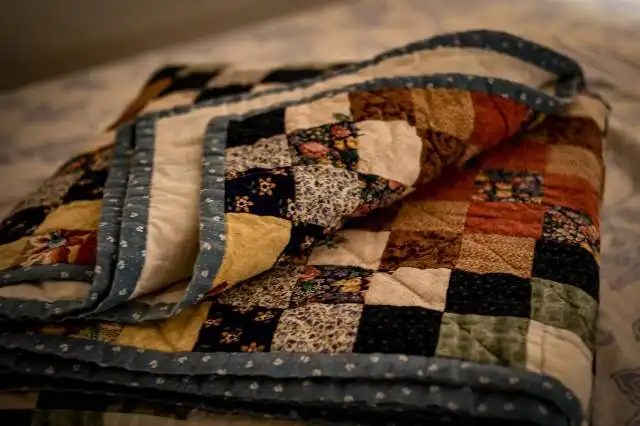Start a Musical Instrument Repair Business
Honing Your Talent Symphony: Establishing a Musical Instrument Repair Business
| Updated


MUSICAL INSTRUMENT REPAIR BUSINESS
If you're the person everyone turns to when their grand piano suddenly decides to sound more like a dying cat, perhaps a career in Musical Instrument Repair Business is for you. This venture seeks to tune up and repair musical instruments ranging from violin strings that have lost their zest, to a bass guitar that's caught a bad bout of static fuzz. Not only does the business require an ear sensitive to harmonic balance, but the dexterity to be the saving grace for beautiful music everywhere. It's a symphony of skills, making every saved instrument a testament to your talent!
Jump to Business Plan
RELATED BUSINESS IDEAS
Browse ALL Arts & Crafts Business Ideas
Discover Your Perfect Domain
Unlock the door to your online success with our hand-picked selection of premium domain names. Whether you're starting a new venture or rebranding an existing one, the right domain can set the tone for your digital presence. Browse through our curated list, each with its unique potential to enhance your brand's visibility and credibility.
MUSICAL INSTRUMENT REPAIR MINI BUSINESS PLAN
This a quick reality check to help you identify the strengths and weaknesses of your business concept before you dive in.
Business Idea: Musical Instrument Repair Business
Expected Percent Margins:
- Gross Margin: 60 - 70%
- Net Profit Margin: 20 - 30%
Earnings Expectations:
Depending on the scale of operations and the charges/repairs, earnings can vastly vary.
- Daily Earnings: $100 - $300
- Weekly Earnings: $500 - $1,500
- Monthly Earnings: $2,000 - $6,000
- Annual Earnings: $24,000 - $72,000
Actions To Hit Those Numbers:
Skill Acquisition & Hiring:
- Training: Get trained and certified in musical instrument repair. Also need to stay updated with the latest techniques and tools in the industry.
- Staff: Depending on the workload, hiring 1-2 trained staff members can create a better workflow.
Purchase & Management of Equipment:
- Initial Investment: Purchase necessary professional repair and maintenance tools which could be an expected investment of around $5,000 - $10,000.
- Ongoing Maintenance: Regular updating and maintenance of your tools should be accounted for in the monthly budget.
Marketing & Customer Acquisition:
- Online Presence: Establish an online presence through a business website and social media accounts to reach out to potential customers.
- Local Networking & Partnerships: Network with local music schools, stores, bands, and musicians. Offering discounts to these networks can boost the business significantly.
Customer Service:
- Offer Diverse Services: From simple string changes to complete overhauls, offering a wide range of services can attract a broader client base.
- Quality Service: High-quality service is crucial. An instrument is often a prized possession for a musician. Ensuring customer satisfaction through quality work can lead to repeat business and referrals.
Business Operations:
- Transaction Volume: Depending on the repair cost, aim for around 5-10 repairs per day.
- Business Hours: Keep convenient opening hours for musicians who may need to work around their own work or school schedules.
Please note that these are generalized figures and can vary based on location, specific instrument types you are servicing, and your specific business model. Always consult with a business advisor for personalized advice.
NOT WHAT YOU HAD IN MIND? Here are more ideas



Browse ALL Arts & Crafts Business Ideas
Grab Your Business Website Name
Before you get caught up in the whirlwind of setting up your business, invest in a domain name. It's a small but significant step that lays the foundation for your brand and makes it easier for customers to find and trust you. Just like you wouldn't build a house without securing the land first, don't build a business without securing your domain name.
"Why? Can't that wait?" Here's why it shouldn't
Step 1: Determine if the Business is the Right Endeavor
Breakdown of Startup Expenses
Starting a musical instrument repair business requires an initial investment of both time and money. Potential expenses include the cost of renting a workspace, purchasing tools and supplies, and any other necessary equipment. Additionally, you may need to hire employees, purchase insurance, and pay for any necessary licenses or permits. It is important to create a budget and stick to it, as this will help you to avoid overspending.
Breakdown of Ongoing Expenses
After the initial startup costs, there are ongoing expenses that must be taken into consideration. These may include the cost of rent, utilities, and any other necessary supplies. Additionally, you may need to pay for advertising, employee wages, and any other necessary expenses. It is important to create a budget and stick to it, as this will help you to avoid overspending.
Examples of Ways to Make Money
There are several ways to make money with a musical instrument repair business. You can charge customers a flat fee for repairs, or you can charge an hourly rate. Additionally, you can offer additional services such as maintenance and tuning, or you can offer lessons. You can also sell musical instruments and accessories, and you can offer discounts to customers who purchase multiple items. Finally, you can partner with local music stores to offer repair services to their customers.
Step 2: Name the Business
When naming a business, it is important to consider the type of business, the target audience, and the message you want to convey. It is also important to consider the name’s availability for use as a domain name and trademark. Additionally, it is important to make sure the name is easy to remember and pronounce.
When choosing a name for a musical instrument repair business, it is important to consider the type of instruments that will be repaired. For example, if the business will specialize in repairing string instruments, the name could include words like “strings” or “frets”. It is also important to consider the target audience. If the business will be targeting professional musicians, the name should be professional and sophisticated. If the business will be targeting amateur musicians, the name should be more casual and fun.
The message you want to convey should also be considered when choosing a name. For example, if the business will specialize in vintage instruments, the name could include words like “vintage” or “antique”. Additionally, the name should be easy to remember and pronounce. This will make it easier for customers to find the business and remember the name.
Finally, it is important to make sure the name is available for use as a domain name and trademark. This will ensure that the business is legally protected and that customers can easily find the business online.
Step 3: Obtain Necessary Licenses and Permits
Before you can start your musical instrument repair business, you must obtain the necessary licenses and permits. Depending on your location, this may include a business license, a sales tax permit, and a zoning permit. Additionally, you may need to obtain a special license or permit if you plan to work on certain types of instruments. For example, if you plan to work on firearms, you may need to obtain a special firearms license. It is important to research the specific requirements in your area to ensure you are in compliance with all applicable laws.
Once you have determined the necessary licenses and permits, you will need to apply for them. This process may involve submitting paperwork, paying fees, and attending an interview or inspection. The time it takes to obtain the necessary licenses and permits can vary greatly, so it is important to plan ahead and allow yourself enough time to complete the process.
In addition to the licenses and permits required by your local government, you may also need to obtain insurance for your business. This may include general liability insurance, property insurance, and workers’ compensation insurance. While insurance is not always required, it is highly recommended to protect your business from potential lawsuits and other liabilities.
Finally, you may need to obtain special certifications or credentials in order to work on certain types of instruments. For example, if you plan to work on pianos, you may need to obtain a Piano Technicians Guild certification. Similarly, if you plan to work on guitars, you may need to obtain a Guitar Repair Certification. It is important to research the specific requirements in your area to ensure you are qualified to work on the instruments you plan to repair.
Step 4: Find a Suitable Location
Finding a suitable location for a musical instrument repair business is essential for success. The location should be easily accessible to customers and have enough space to accommodate the necessary tools and equipment. It should also be in a safe and secure area with ample parking. Additionally, the location should be close to suppliers and other businesses that may be able to provide referrals. When considering a location, it is important to research the local zoning laws and regulations to ensure that the business is in compliance. It is also important to consider the cost of rent, utilities, and other overhead expenses. Finally, the location should be visible to potential customers and have good foot traffic.
Step 5: Obtain Necessary Equipment
Once you have determined the type of business you want to start, you will need to purchase the necessary equipment. Depending on the type of business you are starting, this can range from basic tools and supplies to more expensive items such as specialized tools and machinery. Be sure to research the best prices on the items you need, as well as any warranties or guarantees that come with them. Additionally, you may want to consider renting or leasing some of the equipment, as this can help to reduce your upfront costs. You may also want to look into purchasing used equipment, as this can be a great way to save money. Finally, you should also make sure that you have a secure place to store your equipment and that it is properly insured.
Step 6: Market the Business
Once the business is up and running, it is important to market it so that potential customers are aware of the services offered. This can be done through a variety of methods, such as creating a website, using social media, and advertising in local newspapers. Additionally, word-of-mouth referrals can be a great way to spread the word about the business. It is also important to create a logo and slogan that will help customers remember the business. Additionally, attending trade shows and networking events can be a great way to get the word out about the business and make connections with potential customers. Finally, offering discounts or promotions can be a great way to attract new customers.
Step 7: Set Up Accounting System
Setting up an accounting system is an important step in starting a musical instrument repair business. It is important to track income and expenses to ensure that the business is profitable. An accounting system should include a chart of accounts, a ledger, and a system for tracking accounts receivable and accounts payable. It is important to have a system for tracking inventory and for tracking customer payments. The accounting system should also include a system for tracking taxes and other fees. It is important to have a system for tracking the cost of materials and labor used in repairs. This will help the business owner to accurately track the cost of repairs and ensure that they are charging the correct amount for their services. Finally, it is important to have a system for tracking customer satisfaction and customer feedback. This will help the business owner to ensure that they are providing quality services and that their customers are satisfied with their repairs.
Step 8: Hire Employees
Hiring employees is an important step in starting a musical instrument repair business. It is important to hire employees who are knowledgeable and experienced in the field of musical instrument repair. Before hiring any employees, it is important to create a job description that outlines the duties and responsibilities of the position. Additionally, it is important to create a job application that outlines the qualifications and experience required for the position. Furthermore, it is important to create a hiring process that includes an interview and a background check. Finally, it is important to create a competitive salary and benefits package that will attract the best employees.
Step 9: Develop a Business Plan
The ninth and final step to starting a musical instrument repair business is to develop a business plan. A business plan is a document that outlines the goals, strategies, and financial projections of a business. It is important to have a business plan in place before launching a business so that you can ensure that all aspects of the business are accounted for. When developing a business plan, it is important to include a detailed overview of the business, a market analysis, a competitive analysis, a financial plan, and a marketing plan. Additionally, it is important to include a timeline of when the business will be launched and when it will become profitable. It is also important to include a plan for how the business will be managed, including the roles and responsibilities of each team member. Finally, it is important to include a plan for how the business will be funded, including any potential investors or lenders. A business plan is a critical document for any business, and it is important to ensure that it is comprehensive and accurate.
EXPLORE MORE CATEGORIES
Browse ALL Business Idea Categories
TAKE THE NEXT STEPS










